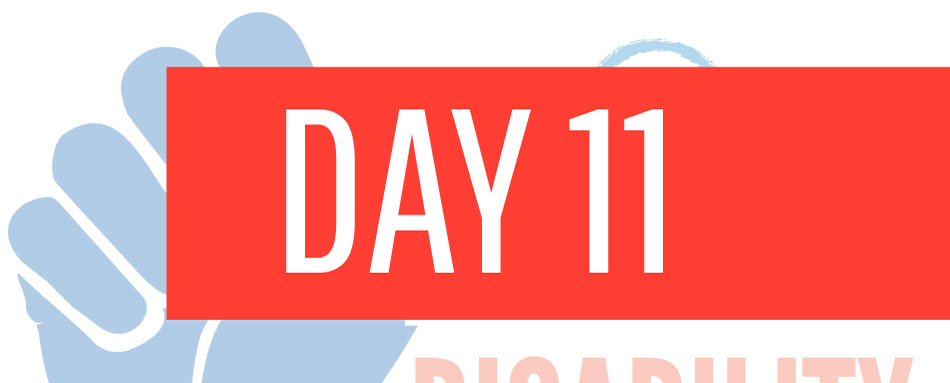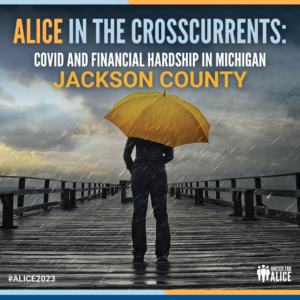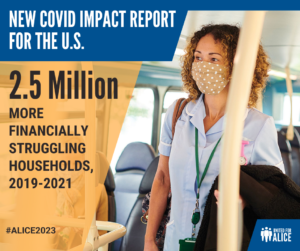
In the United States, it is still legal for some employers to pay workers with disabilities less than the federal minimum wage. When Congress passed the Fair Labor Standards Act of 1938, it federally mandated a minimum wage, but with exceptions. One such exception in the act is Section 14(c), and it is still federal law. Section 14(c) allows employers to apply for a certification from US Department of Labor permitting them to pay disabled people only a fraction of the minimum wage—also known as a “subminimum wage.” According to a 2023 report by the US Government Accountability Office, the majority of people with disabilities who work under a 14(c) certificate make less than $3.50 per hour.
![[Image description: A graphic titled “Subminimum Wages” shows three one-dollar bills and two quarters. Text reads, “According to a 2023 report by the US Government Accountability Office, the majority of disabled people who work under 14(c) certificates make less than $3.50 per hour.” Disability Network Southwest Michigan blue and orange logo in upper left corner of the image.
Attribution: Disability Network Southwest Michigan (2024).
Data source: US Government Accountability Office, Subminimum Wage Program (2023).]](https://unitedforscmi.org/wp-content/uploads/2022/08/dec11.jpg)
[Image description: A graphic titled “Subminimum Wages” shows three one-dollar bills and two quarters. Text reads, “According to a 2023 report by the US Government Accountability Office, the majority of disabled people who work under 14(c) certificates make less than $3.50 per hour.” Disability Network Southwest Michigan blue and orange logo in upper left corner of the image.
Attribution: Disability Network Southwest Michigan (2024). Data source: US Government Accountability Office, Subminimum Wage Program (2023).]
Many employers operating under 14(c) certificates employ people with disabilities in segregated work centers, commonly referred to as “sheltered workshops.” In sheltered workshops, disabled people often do repetitive, menial tasks with no opportunity for job growth or workforce development. In these settings, they have little contact with their non-disabled peers, but are usually supervised by people without disabilities who earn full pay. Sometimes employers contract 14(c) workers out to external locations, to abide by legal restrictions on segregating disabled workers. But the injustice remains. Disabled employees working under 14(c) make pennies on the dollar for their labor, whether they are surrounded by nondisabled colleagues who receive fair wages or segregated in sheltered workshops.
Proponents of sheltered workshops argue that they benefit disabled workers with learning opportunities and prepare them for regular employment in the workforce. However, research has shown that sheltered workshops offer no real advantages for people with disabilities seeking to transition to a regular job. Other proponents argue that sheltered workshops give disabled people something to do rather than stay at home and do nothing at all. The latter argument assumes that people with disabilities are incapable of working regular jobs, and it also neglects the reality of employment discrimination, which creates far more barriers to regular employment than a person’s disability itself. Vermont, the first state to eliminate sheltered workshops, provides significant evidence that former 14(c) workers are able to succeed in regular employment settings when state policies change. Confronting employment discrimination through public policy shifts is a viable alternative to sheltered workshops.
People with disabilities and their allies have led statewide and national movements, advocating for competitive wages and integrated, inclusive work environments for all people. As a result of these movements, at least 11 states and the District of Columbia have moved to end subminimum wages for disabled workers. However, Michigan is not among them. According to the US Department of Labor, as of June 1, 2024, there were 15 employers in Michigan with current or pending 14(c) certificates paying 743 disabled workers subminimum wages. In 2023, two bills were introduced to Congress that would gradually end the use of 14(c) certificates nationwide, if either passed into law: The Transformation to Competitive Integrated Employment Act (H.R. 1263/S. 533) and the Raise the Wage Act of 2023 (H.R. 4889/S. 2488). As of 2024, neither bill has passed, but both are still active. By calling our representatives and pressuring them to end subminimum wages and sheltered workshops, we can work toward an America in which people with disabilities receive fair pay for their labor.

Read
- Mark Wedel, The Lakeshore West Michigan – Why a Nonprofit Is Ending Subminimum Wages for Workers With Disabilities
- Andjela H. Kaur, Rooted in Rights – Getting to the Roots: Why Does Subminimum Wage Persist?
- Madison Hopkins, ProPublica – What the Disability Community Told Us About Sheltered Workshops (full article with audio here)

Watch
Rooted in Rights – Bottom Dollars Movie: Chapter 1 “Excellent Worker“ (5:04, includes captions, audio description, and transcript)
The Daily Show with Trevor Noah – The Subminimum Wage Disability Pay Loophole (6:04, includes captions and transcript)

Listen
The Disability History Association Podcast – Episode 43: Disability Rights and the Fight to End Subminimum Wages (59:37, transcript here)
o Content Note: Mentions sexual abuse.
Discussion
- If you earned $3.50 an hour and worked 40 hours per week, making $140 a week (before taxes), how would you survive on that income?
- Why do you think Section 14(c) is still legal in the United States?
- Do you think equal pay is a human rights issue? Why or why not?










